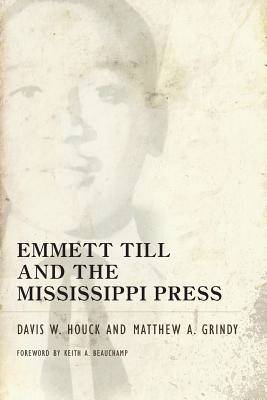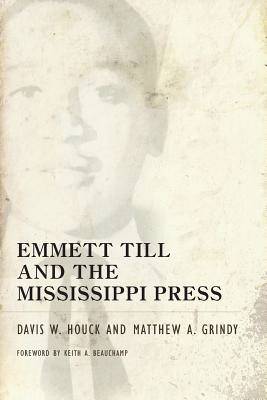
- Afhalen na 1 uur in een winkel met voorraad
- Gratis thuislevering in België vanaf € 30
- Ruim aanbod met 7 miljoen producten
- Afhalen na 1 uur in een winkel met voorraad
- Gratis thuislevering in België vanaf € 30
- Ruim aanbod met 7 miljoen producten
Zoeken
€ 59,45
+ 118 punten
Uitvoering
Omschrijving
Employing never-before-used historical materials, the authors of Emmett Till and the Mississippi Press reveal how Mississippi journalists both expressed and shaped public opinion in the aftermath of the 1955 Emmett Till murder. Combing small-circulation weeklies as well as large-circulation dailies, Davis W. Houck and Matthew A. Grindy analyze the rhetoric at work as the state attempted to grapple with a brutal, small-town slaying. Initially, coverage tended to be sympathetic to Till, but when the case became a clarion call for civil rights and racial justice in Mississippi, journalists reacted. Newspapers both reported on the Till investigation and editorialized on its protagonists. Within days the Till case transcended the specifics of a murder in the Delta. Coverage wrestled with such complex cultural matters as the role of the press, class, gender, and geography in the determination of guilt and innocence. Emmett Till and the Mississippi Press provides a careful examination of the courtroom testimony given in Sumner, Mississippi, and the trial's conclusion as reported by the state's newspapers. The book closes with an analysis of how Mississippi has attempted to come to terms with its racially troubled past by, in part, memorializing Emmett Till in and around the Delta.
Specificaties
Betrokkenen
- Auteur(s):
- Uitgeverij:
Inhoud
- Aantal bladzijden:
- 234
- Taal:
- Engels
Eigenschappen
- Productcode (EAN):
- 9781604738506
- Verschijningsdatum:
- 28/06/2010
- Uitvoering:
- Paperback
- Formaat:
- Trade paperback (VS)
- Afmetingen:
- 156 mm x 234 mm
- Gewicht:
- 326 g

Alleen bij Standaard Boekhandel
+ 118 punten op je klantenkaart van Standaard Boekhandel
Beoordelingen
We publiceren alleen reviews die voldoen aan de voorwaarden voor reviews. Bekijk onze voorwaarden voor reviews.











